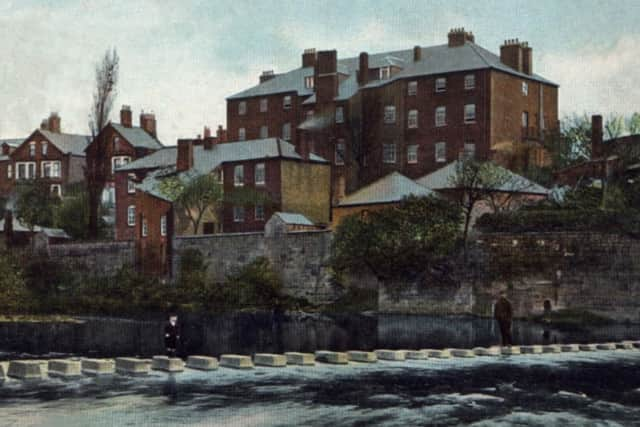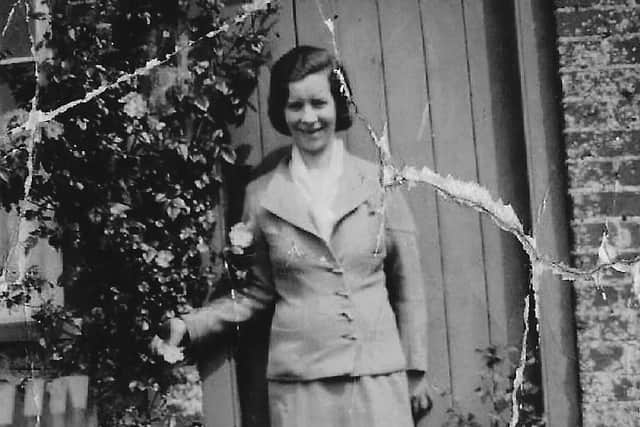Alice's story from Morpeth Workhouse to a rose-covered cottage emerges
and live on Freeview channel 276
Local author Bridget Gubbins, who wrote the book Mysteries of Morpeth’s Workhouse, received a letter from Alice’s descendant daughters Judy and Pat.
Judy, who lives in West Sussex, wrote: “Some years after my mother Alice’s death in 1977, my niece was looking up our family history.
Advertisement
Hide AdAdvertisement
Hide Ad“We were very sad to learn of Alice’s difficult girlhood. All through our childhood she had made up a fictional past, which we had no reason to disbelieve.”


The letter continues: “Alice’s mother, our grandmother Rose, was abandoned by her husband who was subsequently sent to prison. After being deserted, she and her three children Alice, William and Daniel ended up in the workhouse.
“The boys, older than Alice, were put in the boys’ house. When Alice was three, her mother Rose died.
“Alice was left in the workhouse until she was old enough to be put out into service. She was 14 years old. This would be in about 1925.”
Advertisement
Hide AdAdvertisement
Hide AdThe story continues in a happier mode. Judy wrote: “Alice married William Allan in 1934 at St Mary’s Church in Blyth and soon afterwards they moved to a rose-covered cottage in West Sussex, where our family still lives.”


Judy tracked down Bridget’s book, although records are limited from the early 20th Century.
She added: “I would love to have known my mum’s history when she was alive as I am extremely proud of the person she became. She obviously felt great shame regarding her time in the workhouse. I wonder if her husband, our dad, knew her true history?”
Bridget said: “We see things differently nowadays; that there is no shame in being poor, or being so unlucky that you have no choice but to be sent to the workhouse. Judy and Pat and their family would never have blamed her had they known.
Advertisement
Hide AdAdvertisement
Hide Ad“All that is left of the workhouse now are old records and photographs of that gloomy building by the River Wansbeck. We may imagine Alice and her brothers looking out over the river, over the stepping stones, wondering what the future held for them.”
The book, published by the Greater Morpeth Development Trust in 2013, can be found in Northumberland County libraries and on Amazon.